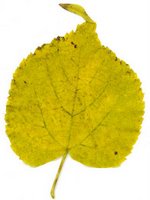Asian & Pacific Islander Family Pride (reporting back from NGLTF's Creating Change, part 1)
While I've been posting, I haven't yet sat down to post at any length about my experiences attending my first Creating Change conference this past November in Oakland, CA. It's about time, for what I hope will the first post among many reporting back from Creating Change.
I've just spent the morning watching two films that I got for free, on DVD, from the Asian & Pacific Islander Pride workshop session that I attended. From the DVD credits:
Asian & Pacific Islander Family Pride's mission is to end the isolation of A & PI families with lesbian, gay, bisexual and transgender members through support, education and dialogue. Our vision is the recognition and acceptance among A & PI families of the sexual and gender diversity within our cultures.
http://www.apifamilypride.org
info@apifamilypride.org
P.O. Box 473
Fremont, CA 94537
510-818-0887
Film 1, Coming Out, Coming Home: Asian Pacific Islander Queer Families' Stories: The families of lesbian, gay, transgender and bisexual Asians and Pacific Islanders describe their efforts to find support, overcome homophobia and transphobia, and to improve their family relationships. Dir. Hima B. Closed captioned. Running time: 44 minutes.
Hima B. is an independent director/producer whose work has been shown internationally and nationally. An Indian-American femme-dyke, her work includes documentaries, Straight for the Money, shown at the 1995 Whitney Biennial and Coming Out, Coming Home. Through her independent communication company, Himaphiliac Productions, she creates documentaries, narratives, and experimental work that explore the intersections of race, gender, sexuality, and economics, especially as it relates to queer women.
Film 2, There is No Name For This: explores the joys and difficulties of coming out across cultural and language barriers among Chinese and Chinese-American lesbians, gays and bisexuals. The first video to examine the lack of vocabulary to explain issues of identity in Chinese languages, There is No Name For This introduces 21 individuals in various stages of coming out and how their family and friends have responded to them. Dir. Ming-Yuen S. Ma, Cianna P. Stewart and Jessica Yu. Running time: 49 minutes. Prod. Asian & Pacific Islander Wellness Center.
A&PI Wellness Center educates, supports, empowers, and advocates for A&PI communities, particularly A&PIs living with or at-risk for HIV/AIDS. Founded in 1987 as a grassroots response to the HIV/AIDS crisis in communities of color, it is the oldest nonprofit organization in North America focusing on A&PI communities around sexual health and HIV/AIDS services.
http://www.apiwellness.org
730 Polk St., 4th Floor
San Francisco, CA 94109
Tel: 415-292-3400
TTY: 415-292-3410

First I have to say just how awesome it is to have been able to get this DVD for free, and to take home with me. I even picked up a couple of extra copies, and I'm going to find out how to get my school's Non-Print Media Library to add it to their collection so that it will be available to others. Then I'm going to advertise it with (at least) the core and affiliate faculty in Asian American Studies and LGBT Studies.
I can't say enough how much I enjoyed the workshop session that API Family Pride put on. Never mind the huge spread of food they provided, and all the literature they had available (a souvenir copy of their Family Honor Roll which celebrates individual API families who support their LGBT children/relatives/friends in spite of the prejudice they encounter, and a copy of "Beloved Daughter" 3rd ed. in Chinese and English which is a collection of letters from parents about their experiences accepting and understanding their lesbian/bisexual daughters), the accepting, loving, nourishing, open environment they created was just what I needed that particular night (it was a 6pm Friday night workshop).
It was amazing to hear parents talk about their love and acceptance of their queer API children, and to see their acceptance played out through the existence and programming efforts of API Family Pride. Even though we didn't all share the same stories of celebration when it came to our families and their acceptance (or lack thereof) of our queerness, it was inspiring to see that others did have that acceptance. I left feeling hopeful that we could all move towards just that.
One participant raised a question about how to deal with it when parents know about their child's queerness, but where the child then seems to become the "hidden" child, not often talked about with friends and relatives. Even though there does seem to be some acceptance, there is also a silence.
I realized I have similar dynamics with my own parents. I very clearly came out to them in a letter, and they very clearly let me know that they still love me in a reply letter. Over the years I have brought lovers home, and have been open about living with lovers. Yet there is still so much that's never been said, face-to-face (um...for instance I've brought lovers home and lived with lovers without ever being explicit with my parents that that was our relationship).
I think I don't give my parents enough credit--for the love and acceptance that they've always shown me. I know that the silence between us is due in large part to me. No, I no longer avoid talking to my parents or going home to visit them like I did for several years before I came out to them, but I am still withholding all of myself from them. I'm the one who feels embarrassed that I keep bringing different lovers home, thinking and acting each time that this is the ONE. I'm the one who doesn't want to talk about another lover, or bring another lover home until I know we're going to be together forever. I'm the one who tells them only about what I'm doing in school, and then illogically fears that they only care about how I'm doing in school.
I don't know that I know exactly what to do/say to start to change things, but it is very comforting to have had this opportunity to see that I am holding myself back in so many ways. I look forward to the potential of what I now realize my relationship with my parents could be, when I remember to keep out of my own way.









